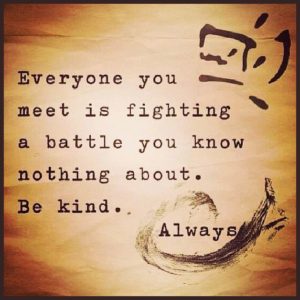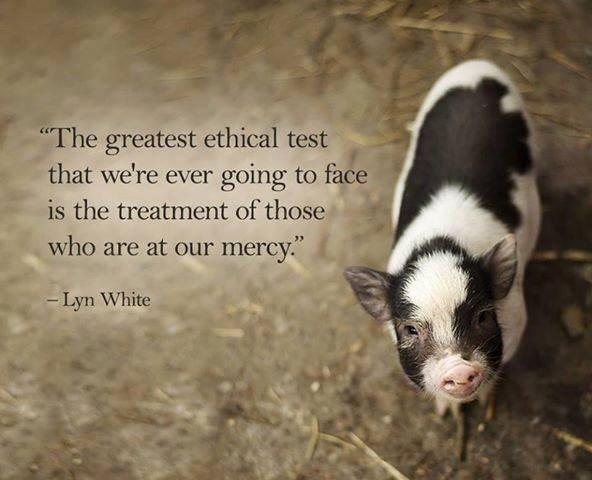Habits of harm to people | Habits of harm to animals | Habits of harm to nature
This section is challenging because no one wants to acknowledge or think about the ways we may cause harm to the world around us. And yet, to limit harm this is exactly what we must bring into our conscious awareness. We all have habits and practices that cause harm. Maybe we feel guilt or shame – but those feelings only make it harder for us to find and embrace positive changes. The more we’re able to openly perceive our challenges, the more likely we are to replace guilt and shame with self-compassion and constructive practice. Confession promotes humility which paves the way for self-compassion and gratitude.
The habits in these lists are common challenges for most of us. Reflecting on these habits and the harm they may cause, gives us a chance to shed light into our dark corners and to identify changes we’d like to make. Once identified, we find ways to weave these into our daily practices and to embrace ourselves as we strive to do less harm.
Habits of Harm To people
- We fail to accept that we are all human, imperfect, and doing our best with what we have and what we know.
- We hold such high expectations! — of ourselves, of our children and family, of others….
- When those expectations are not met we offer criticism, judgement, and accusation rather than patience, a friendly ear, and a helping hand.
- We forget the importance of forgiveness and thus we perpetuate damage to our relationships with others.
- We are eager to incarcerate those who run afoul of the law, even when that punishment doesn’t truly fit nor remedy the crime and may cause more harm than good for a misguided individual.
- When we fail to understand the views and actions of others, we are quick to judge them harshly.
- We judge ourselves harshly which limits our ability to be forgiving and accepting of others.
- We allow our impatience, resentments, fear, and judgement to define our engagement with the world rather than engaging with love, hope, gratitude, and joy.
- We indulge in the habit of addressing problems by engaging in argumentation and dispute through social media, a practice which fuels the division and polarization of our society and prevents us from engaging in productive discussions and problem-solving dialogue.
- We don’t take the time or effort to engage with others in meaningful and respectful ways to address problems or disagreements.
- We choose to blame and label rather than to learn, understand, and communicate.
- We fail to pause and examine our actions for the harm they may hold and we become defensive if that harm is pointed out by another.
- We fail to understand that we may be blind to the racism and injustice perpetuated by cultural norms.
- We fail to understand that trauma is often invisible to outsiders, that it may affect populations and individuals for generations
- Why Do We Harm Each Other? | Psychology Today
Explore Habits of compassion for people…

Habits of Harm To Animals we Keep
- We forget or deny that animals are sentient beings and we view them as “things” and “possessions” that exist only to serve our needs and pleasures.
- We justify our disregard for the most basic needs of animals, instead regarding them as economic products to be traded for our own profit.
- We keep animals for food, skins, entertainment, and research despite the fact that the practices within each of these uses is sufficient to make most of us cringe and to bring many of us to our knees.
- We demand animals be raised, kept, and slaughtered as cheaply as possible despite the tragic consequences to the animals, the environment, and even the people who consume them.
- We guard our habit of owning and breeding pets knowing that this practice is directly responsible for a tragic system of puppy mills and breeding practices and for placing millions of innocent and ill-bred pets into the homes of people who can not or will not care for them resulting in abuse, neglect, and hoarding.
- We turn away and disregard the “inconvenient truths” about our role in suffering we cause to animals and how that harm affects our relationship to all life.
- Animal Advocacy By Numbers – Faunalytics – A detailed look at the scope of animals at risk from human activity
- How Are Animal Abuse and Family Violence Linked? | National Link Coalition
- Tracking Animal Cruelty — FBI – In 2016, the FBI took steps to begin tracking reported cases of animal cruelty, responding to evidence that “cruelty to animals is a precursor to larger crime.”
Explore habits of compassion for animals…

Habits of Harm To Nature
- We waste and misuse the energy produced to serve our needs.
- We reject and deny our role in altering the environment and contributing to climate change.
- We allow convenience and low cost to drive our consumption practices despite the harm that convenience and low cost causes to the environment.
- We use and discard harmful products such as plastics, chemicals, fertilizers, balloons, food containers, … into the environment, often with little thought about how they may harm the plants and animals that encounter them.
- We destroy and take over the habitat that supports wildlife, native plant, insects, and the biodiversity that sustains all life.
- We allow our farming and gardening practices to be defined by the marketplace and misguided social norms rather than cultivating native gardens that nurture the health of our local ecosystems.
- We have come to see wildlife as a nuisance and something to be feared and killed. We fail to see its integral place in the biodiversity of life and we fail to see how the damage we inflict on nature is damage we inflict on ourselves.
- We support or passively accept practices of killing wildlife for “pleasure”, such as Trophy hunting, Canned hunting (such as Fox pens), Wildlife Killing Contests, and Wildlife Trafficking.
- We kill and maim countless field-dwelling animals and young fawns through the practices we use for hay and crop harvesting and soil tillage.
- We allow our habit for high speed and distracted driving to result in countless road collisions.
- Our use of wind turbines, planes, and even picture windows kill and maim countless birds.
- We wreak havoc on the natural biorhythms and sensitivities of wildlife through the use of disruptive activities such as mining and fireworks.
Explore habits of compassion for nature…
